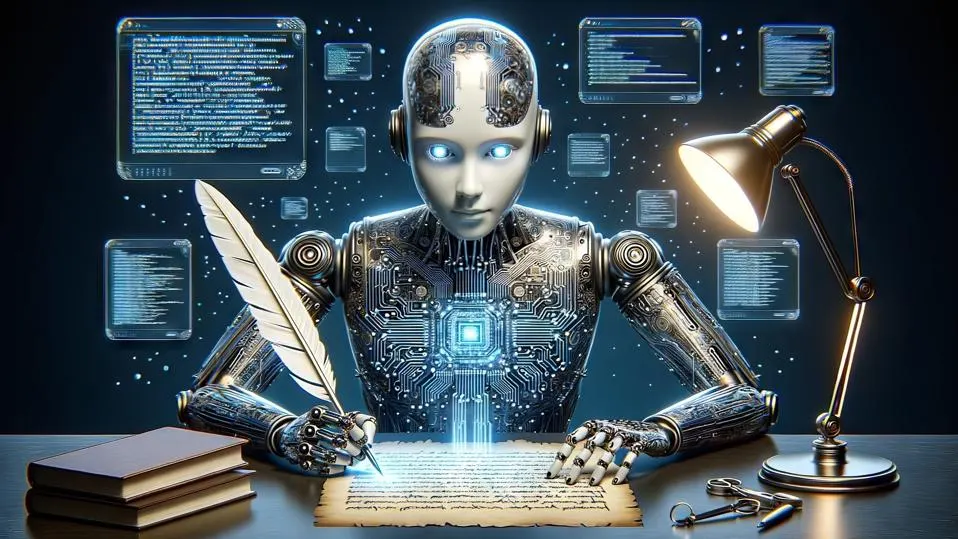The rise of artificial intelligence transforms creative fields in ways I once thought were the domain of human ingenuity. More-so, generative AI tools, such as ChatGPT, are no longer experimental novelties but key players in creative industries, especially journalism. As much as these tools offer incredible promise to support and inspire, they raise questions that I find hard to ignore. But the questions remain – who owns a piece of work when it is created with AI, and most importantly, what does it say about creativity and human effort in storytelling? I consider these ethical dilemmas as something we really have to ponder. This article discusses how the exponential growth could complement creativity in journalism, but overall how the use of AI tools is ruining the integrity of journalism.
The Rise of ChatGPT within Journalism

It took no time for ChatGPT to change the face of journalism by making the most mundane tasks, such as drafting ideas and data analysis, easier. But does that make the work unoriginal? If used responsibly, it has the power to enhance investigative work and fact-checking, which can be beneficial to journalists. However, in the case of over-reliance on technology, this may make the work unoriginal. ChatGPT has just as much power to write a complete article as it does to draft ideas and data analysis. This has led to ethical concerns about over-reliance on ChatGPT as a creative tool in journalism. While it does enhance investigative work when used responsibly and makes fact-checking more easily accessible, this might make some journalists feel as though they have no incentive to write their pieces anymore, as the computer can do those tasks for you. This threatens the integrity and core principles journalism is built on.
Does AI Strip Articles of Emotion?

Recently, with the extended use of AI tools, some say that they make the writing less emotional or even less human. While tools like ChatGPT are great at spitting out content within seconds that is very specific and organized, one could argue it has no compassion and cannot replicate that human touch to pieces of writing that real writers have.
Down below, there are two little blurbs – one written by a human and the other by AI. Based on the structuring of the two blurbs, which was written by the human and which by the computer?
- Work carries the weight of our emotions- our joys, frustrations, and aspirations. AI, though efficacious, often sounds hollow, devoid even of the spark of individuality, the original voice that connects us on a human level.
- Work is a fundamental component of existence, and artificial intelligence plays a key role in optimizing workflows through systematic provision. However, AI-generated outputs may lack the inherent emotional depth that human expression conveys, resulting in outputs that are more utilitarian than personalized.
The first piece feels human. It reflects real emotion and vulnerability. It’s not just words; it’s someone actually putting their time and effort into their writing. It’s more passionate, making the readers feel something. That’s what human writing is – honest and alive. It’s not just sharing info; it’s sharing themselves. The second piece? AI-generated 100% It’s clean and quick, but the writing feels detached and cold; it doesn’t have heart. The computer writing doesn’t feel emotion while writing and doesn’t pour its emotion into its writing.. It doesn’t feel joy, loss, or nostalgia. It’s just there. It can give you facts, but it will never make you feel them.
Does AI Ruin the Integrity of Journalism?

When I think of journalism, I think about stories that make me feel some sort of emotion- anger, hope, sadness, any sort of emotion. That is journalism at its best. Not about reporting facts, not about spitting words out onto a page, but about the people. About the lives and stories behind the headlines, the feelings that give the story its gravity, and having the responsibility to report the truth. And then I’m reading about AI-generating articles, and I can’t help but wonder about it. Although I am in awe of its ability to rapid-fire content, where exactly is the heart and integrity in that? Where is the concern, the empathy, the realization of what it is like to be human, and the ability to be able to write these authentic heartfelt stories? Artificial intelligence does not understand how to carry a story’s weight, what it’s like to sit down with another human, to have a voice break when a person tells them some hard news. AI doesn’t care. It does not care for the accuracy in the way a journalist cares about accuracy. It does not care for the consequences of shattering trust as it is a computer simply doing its job, removed from the reality that it is reporting on. The over-dependence on AI will ruin journalism as we will not be able to feel the connection between a journalist and a reader, the humanity that makes a story worth reading in the first place. Journalism is about connection and no computer can ever come near replicating that feeling.
Takeaway
At its core, journalism is not just about news; truth, accountability, and human connection- which is the true meaning of a story- all of these things combine. Of course, AI could be a helpful resource with this, but in journalism, no surrogate replacement can mimic the true work of a journalist. That means thinking critically, putting yourself in others’ shoes, and having a sense of ethical obligations tell one to get the story right. Integrity- if we are going to preserve such- we put humans above all and any algorithms. Journalism is all about humanity, the lives of people, feelings, and the truth behind headlines. Something a machine could never replicate.
Works Cited
“Ai and the Future of News.” Reuters Institute for the Study of Journalism, reutersinstitute.politics.ox.ac.uk/ai-journalism-future-news. Accessed 23 Jan. 2025.
“Apple Suspends AI-Generated News Alert Service after BBC Complaint.” The Guardian, Guardian News and Media, 17 Jan. 2025, www.theguardian.com/technology/2025/jan/17/apple-suspends-ai-generated-news-alert-service-after-bbc-complaint.
Cjr. “Artificial Intelligence in the News: How Ai Retools, Rationalizes, and Reshapes Journalism and the Public Arena.” Columbia Journalism Review, www.cjr.org/tow_center_reports/artificial-intelligence-in-the-news.php. Accessed 23 Jan. 2025.
Farber, Alex. “Guardian Staff ‘deeply Disturbed’ over AI Use during Strike.” The Times & The Sunday Times, The Times, 17 Jan. 2025, www.thetimes.com/business-money/article/guardian-staff-deeply-disturbed-over-ai-use-during-strike-dtldjh8c9.
Guess, Robin. “AI Generates Debate over Newsroom Ethics.” Voice of America, Voice of America (VOA News), 24 Jan. 2024, www.voanews.com/a/ai-generates-debate-over-newsroom-ethics-/7450743.html.
Radsch, Courtney C., et al. “Journalism Needs Better Representation to Counter AI.” Brookings, 23 Dec. 2024, www.brookings.edu/articles/journalism-needs-better-representation-to-counter-ai/.








